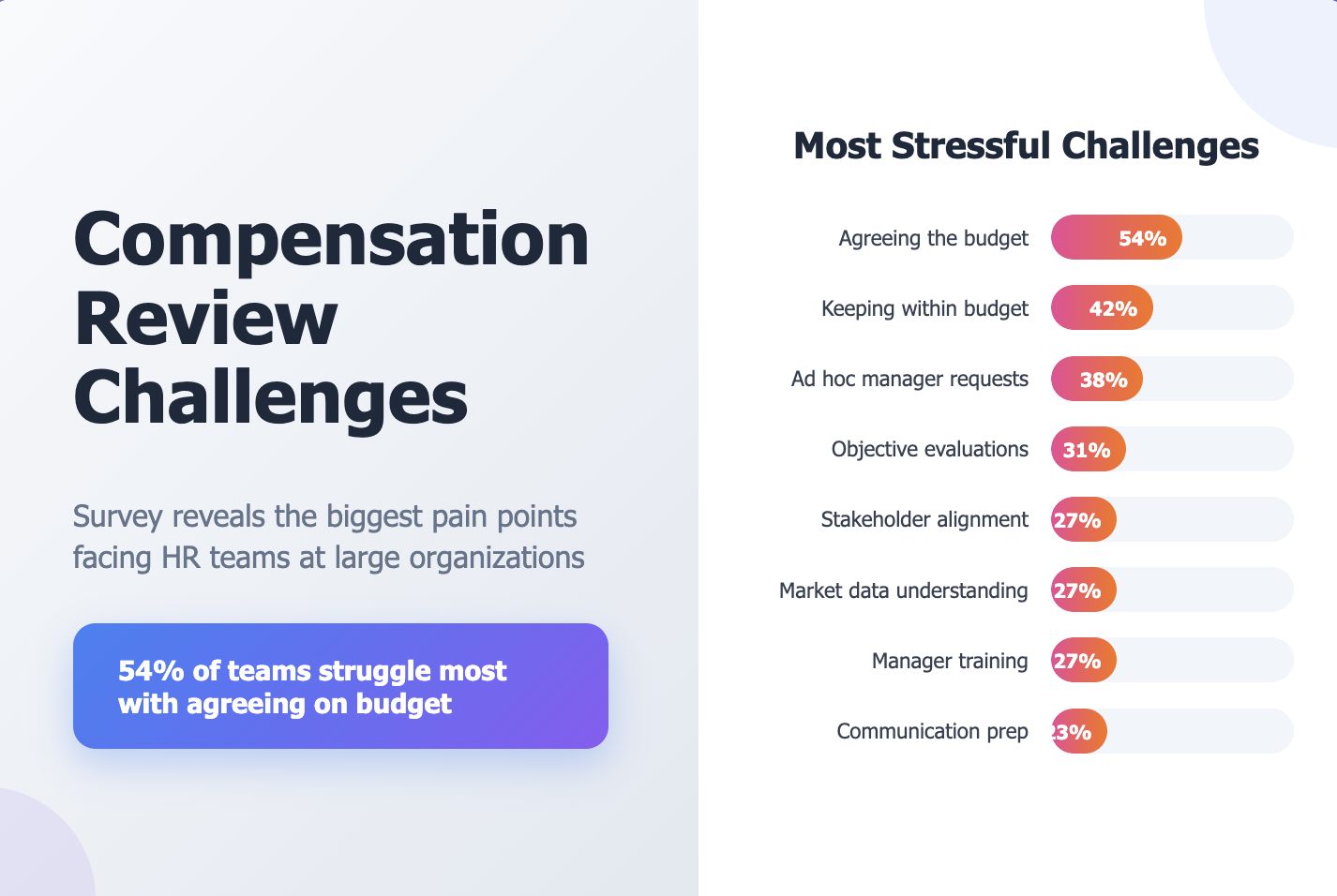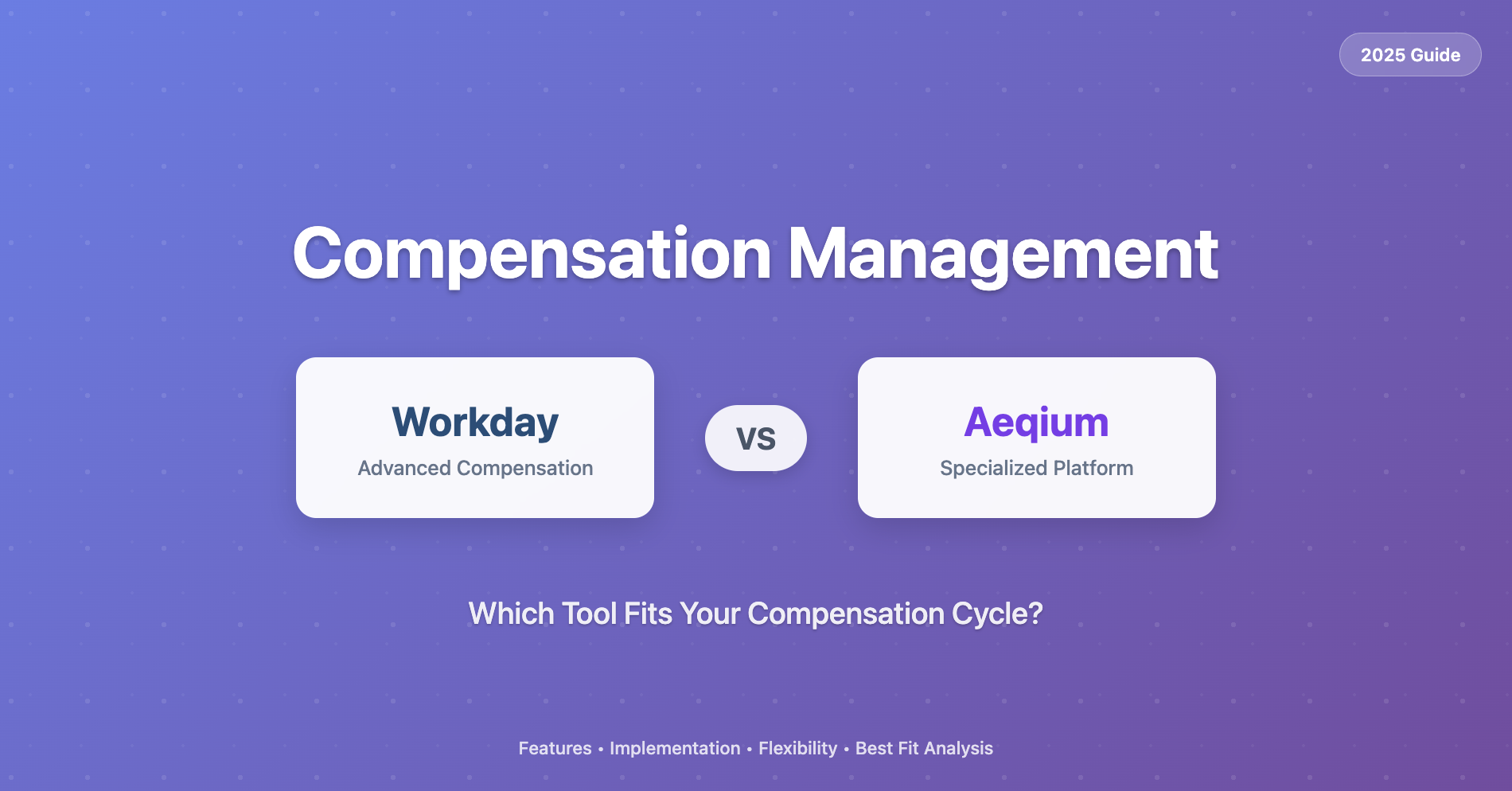Why Implementation Costs Are Driving HR Teams Away from Legacy Compensation Systems

The Hidden Cost of Legacy HCM: Why Implementation Is the Breaking Point for HR Tech
A recent Forbes article spotlighted the growing interest in AI-powered compensation management. It cited implementation costs as one of the primary obstacles keeping HR leaders from adopting modern platforms. While that concern is valid, the data may be skewed by the painful experiences many leaders have had with legacy HCM systems.
For many in Total Rewards, "implementation" brings to mind long, expensive projects filled with consultants, delays, and technical headaches. These aren't just stories. They are the norm with older systems. The result is hesitation to adopt any new tool, even those that promise to reduce complexity. But the reality is changing.
Legacy Tech Created the Implementation Stigma
HR teams have been conditioned to expect implementation to be costly and slow. In conversations with compensation leaders, one recurring theme is how resource-intensive it was to roll out the compensation module in their legacy HCM. Some teams spent more than a year trying to configure a basic merit planning workflow. Others were told they would miss their entire next compensation cycle if they started implementation too late in the year.
The problem is not the concept of technology adoption. It is the outdated design and rigid structure of legacy systems that make change so difficult.
Modern Platforms Are Designed to Eliminate These Barriers
Next-generation compensation tools are built with a different philosophy. At Aeqium, the goal from day one has been to make implementation simple, fast, and flexible. That means no reliance on large external teams, no six-month timelines, and no complicated configuration processes that only consultants understand.
AI is accelerating this shift even further. Smart configuration tools can guide teams through setup, assist with data mapping, and adapt to changes in org structures or planning cycles. What used to take weeks of manual work can now be automated or assisted by machine learning models that continuously improve.
Implementation Is Not Just a Cost Issue. It Is a Strategic Risk
Implementation delays do more than inflate budgets. They introduce risk to the compensation cycle itself. Total Rewards teams are held to strict timelines. A missed deadline can mean delayed merit increases, missed equity grant windows, or loss of trust from employees.
As HR plays a larger role in company planning, the systems they rely on must be able to move quickly. Waiting several quarters to complete a system rollout is no longer acceptable.
What to Look for in Your Next Compensation Platform
If you are evaluating new compensation software, implementation should be one of your first considerations. Ask vendors:
- How long does the average customer take to go live?
- Can your internal team manage setup and changes without external consultants?
- Does the system offer AI-supported configuration or planning tools?
- Is the product built specifically for compensation or is it part of a broader HCM suite?
The answers to these questions will tell you whether the product will be an enabler or another burden.
Conclusion
Implementation has become the number one reason HR leaders delay upgrading their compensation tools. But this challenge is not inherent to technology. It is the result of outdated systems and slow-moving processes. Modern platforms can deliver a faster, more supportive rollout experience, especially when AI is used to remove friction.
If you are planning your next cycle and worried about timelines, you do not have to choose between functionality and speed. You can have both.
Explore how Aeqium helps Total Rewards teams launch fast and plan with confidence. Take the product tour →




